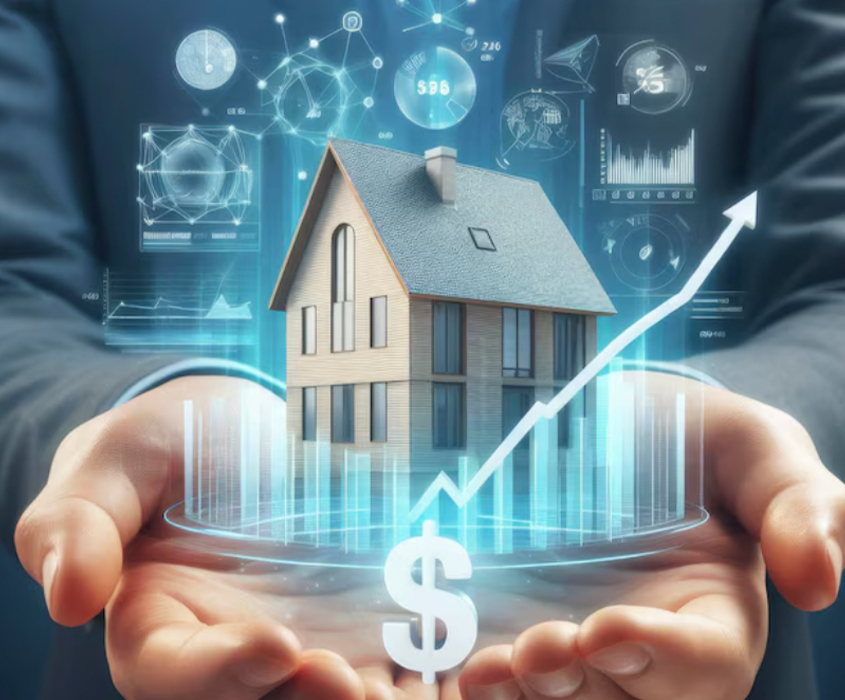Energy audits for businesses are a powerful yet underutilized tool in Vietnam’s competitive market. If you’ve ever questioned whether your enterprise is operating at peak efficiency, an energy audit could be the key to unlocking substantial savings and improved performance. Let’s explore the process and benefits of energy audits in Vietnam in the article below!
What is an Energy Audit?
An energy audit is a systematic assessment of energy use within a building or facility. It aims to identify how and where energy is being consumed, detect areas of energy waste or inefficiency, and recommend cost-effective measures to improve energy efficiency.
The ultimate goal is to identify consumption leakages, reduce energy consumption, lower utility costs, and decrease the building’s environmental impact. Energy audits can be performed on residential, commercial, or industrial properties, providing valuable insights for property owners and managers to make informed decisions about energy-saving or efficiency improvements.

Types of Energy Audits
For businesses in Vietnam that own their buildings, professional energy audits can be a valuable tool for improving energy efficiency. According to Energy Star, there are several types of energy audits, each offering different levels of detail in surveying your property:
- Level I – Walk-Through Analysis focuses on low and no-cost energy conservation measures and provides a list of higher-cost energy conservation opportunities. This type of audit typically results in a report detailing potential energy and cost savings from specific efficiency improvements. It’s suitable for businesses looking for quick, easily implementable solutions to reduce energy consumption and costs.
- Level II – Energy Survey and Analysis includes more detailed energy calculations and financial analysis of proposed efficiency measures. It utilizes life cycle analysis to better illustrate the long-term financial benefits of energy efficiency upgrades. This audit provides a comprehensive list of energy conservation/efficiency measures, estimates of energy and cost savings for each measure, and cost estimates for implementing each measure. It also includes recommendations for necessary changes to operations and maintenance procedures. Level II audits are ideal for businesses ready to make more significant investments in energy efficiency.
- 3. Level III – Detailed Analysis of Capital-Intensive Modifications builds upon the previous levels with a focus on specific, complex energy conservation/efficiency measures. This may involve the refinement of energy models or more extensive data collection and analysis. Level III audits are typically used for large-scale or high-cost energy efficiency projects and are suitable for businesses planning major renovations or considering substantial energy system overhauls.

The Energy Audit Process
The energy audit process applied in Vietnam is typically flexible and adaptable, varying depending on the scope of the proposed audit, as well as the size and type of equipment to be audited. The audit follows these steps:
- Step 1: The audit team develops a detailed plan, establishing audit objectives, dividing the facility into functional areas or cost centers, selecting team members, assigning responsibilities, and listing equipment for inspection.
- Step 2: Auditors conduct an initial walkthrough of the facility, observing production lines and equipment in operation to gain a general understanding of energy consumption patterns.
- Step 3: Basic production and energy consumption data is gathered from various departments or cost centers. Standard forms and worksheets are used to collect information such as utility bills, production records, and annual energy consumption figures.
- Step 4: The team performs tests to collect additional data on equipment performance and specific production areas. In some cases, this may involve setting up measurement points or monitoring stations.
- Step 5: Auditors analyze the collected data to determine energy balances and calculate efficiency metrics for various systems and processes.
- Step 6: The audit team identifies areas where energy management practices can be improved and assesses the potential for energy savings.
- Step 7: Auditors evaluate current operational and maintenance procedures, identifying potential energy-saving measures and assigning responsibilities for implementation.
- Step 8: The team identifies and evaluates low-cost energy-saving measures, estimating implementation costs and potential energy savings. This step includes planning for financial investments and clearly defining responsibilities and timelines.
- Step 9: Larger energy-saving projects are assessed, with costs and potential savings calculated. Detailed implementation plans are prepared for solutions with acceptable payback periods.
- Step 10: A comprehensive report is compiled for facility management, summarizing findings and recommendations. This includes all collected data, analysis methods used, and suggestions for energy efficiency improvements based on the audit results. The report also outlines a clear action plan for implementation.
Benefits of Energy Audits for Businesses in Vietnam
1. Reduced Energy Expenses
The primary advantage of energy audits is significant cost savings. Energy audits help Vietnamese businesses identify and eliminate energy waste, leading to significant cost savings. This is particularly important in Vietnam, where energy demand is rapidly increasing. These audits can reveal opportunities for optimizing equipment usage and upgrading to energy-efficient technologies.
While specific savings can vary greatly depending on the business and measures implemented, many companies report significant reductions in energy consumption after conducting audits and following recommendations.

2. Identify Equipment Problems
Audits can uncover issues with equipment performance or maintenance that may be causing energy waste. Moreover, energy audits often reveal outdated or inefficient equipment that may be consuming excessive energy. Early detection of these problems allows for timely repairs or replacements, preventing costly breakdowns and improving overall operational efficiency.
Auditors can also detect dangerous health risks such as carbon monoxide emitted from malfunctioning equipment. Regular energy audits help identify potential health hazards, allowing businesses to address these issues promptly and ensure staff safety.
3. Personalized Recommendations for Your Business
Energy audits provide tailored suggestions based on specific business operations, facilities, and energy usage patterns. According to the Vietnam National Energy Efficiency Programme (VNEEP), energy audits in industrial sectors have led to significant energy savings.
To achieve this, auditors consider factors such as building layout, equipment usage, and operational patterns. Recommendations are prioritized based on potential impact and feasibility for implementation. As a result, businesses receive a roadmap for energy efficiency improvements aligned with their goals and budget. Ultimately, custom strategies ensure optimal results and return on investment for energy-saving initiatives.
4. Increased Property Value
Implementing energy-efficient upgrades based on energy audit recommendations can significantly enhance your property’s value. Investments in technologies like solar panels, high-efficiency LED lighting, and weatherization not only reduce energy consumption but also boost market appeal.
This “green” approach aligns with current real estate trends, as evidenced by studies on ENERGY STAR certified buildings. Such properties enjoy notable financial benefits, including approximately 3% higher rental rates, improved occupancy levels, and a substantial 16% premium in selling price. Therefore, allocating a budget towards energy efficiency improvements is a strategic decision that can yield both immediate savings and long-term financial gains in the competitive real estate market.

5. Longer Equipment Lifespan
Upgrading equipment based on energy audit recommendations offers multiple benefits for businesses. Modern, energy-efficient units not only reduce energy costs but also tend to have longer lifespans due to their optimized performance. These newer models operate more efficiently, reducing strain and wear compared to older, less efficient equipment.
Consequently, Vietnamese businesses can expect extended equipment durability, leading to fewer replacements and lower long-term capital expenditures. This approach maximizes return on investment in machinery and technology while enhancing operational stability.
Challenges and Considerations in Implementing Energy Audits
Implementing energy audits in Vietnamese businesses faces numerous significant challenges. One of the main barriers is the lack of awareness about the importance and benefits of energy auditing. Many businesses, especially small and medium-sized enterprises, often view this as an unnecessary expense rather than a long-term investment. Additionally, the shortage of qualified and experienced energy auditors in Vietnam is also a major obstacle. This can lead to inaccurate or incomplete audit results, reducing the effectiveness of the process.
Another challenge is the complexity of the energy auditing process, which requires close cooperation between various departments within the business. Collecting accurate and comprehensive data on energy consumption can be difficult, especially when many businesses lack efficient energy monitoring systems. Moreover, implementing recommendations from energy audit reports requires financial investment and changes in operational processes, which many businesses may be reluctant to undertake, particularly in challenging economic contexts.
How can businesses get started with an energy audit?
Starting your business’s energy optimization journey is no longer an overly complex task. In Vietnam, companies like Vinergy offer professional energy auditing and monitoring services, making it easy for businesses to begin this process. To get started, simply get in touch with us to schedule a preliminary assessment.
Vinergy will help your business implement the energy audit process, from collecting energy data and conducting on-site inspections to analyzing and providing specific recommendations. With the support of our experienced professionals, your business will quickly realize the significant benefits of optimizing energy use, not only reducing costs but also improving overall operational efficiency.
